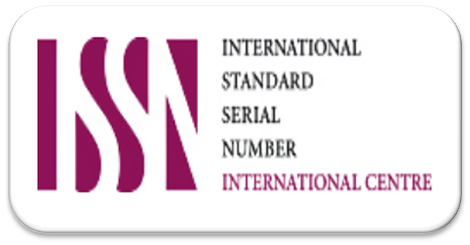Kesiapan Belajar Siswa dalam Pembelajaran Pascapandemi Covid-19 Pada Mata Pelajaran Pendidikan Agama Buddha dan Budi Pekerti di Sekolah Menengah Pertama Dharma Putra Tangerang
Abstract
Keywords
Full Text:
PDF 70-78References
Alzamil, Z. S., & Vasarhelyi, M. A. (2019). A new model for effective and efficient open government data. Intern Moustakas, Clark. 1994. Phenomenological Research Metods. California: SAGE Publications, Inc.
Creswell, John W. 2014. Penelitian Kualitatif & Desain Riset Memilih di Antara Lima Pendekatan (Ed. Ke 3). Terjemahan Ahmad Lintang Lazuardi. Yogyakarta: Pustaka Belajar.
Kristina, Ici. 2021. “Dampak Pandemi Covid-19 terhadap Pembelajaran di TK Punna Karya”. Skripsi. Tangerang: Program Sarjana STABN Sriwijaya
Mulyanto, C. B. (2022). Pengalaman Guru dakam Melaksanakan Pembelajaran Setelah Berakhirnya Pemberlakukan Pembatasan Kegiatan Masyarakat. Jurnal Besicedu, Vol 6, No 5.
Diyaurrahman, R. N. F., Daniswara, N. D., Sembodo, B. P., & Damariswara, R. (2022). Kesiapan Pembelajaran Guru dan Siswa di SD Negeri 2 Tamban Pasca Pandemi Covid-19. Wahana, 74(2), 222-232.
Desmita. 2010. Psikologi Perkembangan Peserta Didik. Bandung: PT Remaja Rosdakarya.
Sulaiman, S., & Neviyarni, S. (2021). Teori Belajar Menurut Aliran Psikologi Humanistik Serta Implikasinya Dalam Proses Belajar dan Pembelajaran. Jurnal Sikola: Jurnal Kajian Pendidikan dan Pembelajaran, 2(3), 220-234.ational Journal of Disclosure and Governance, (0123456789). https://doi.org/10.1057/s41310-019-00066-w
Chatfield, A. T., & Reddick, C. G. (2017). A longitudinal cross-sector analysis of open data portal service capability: The case of Australian local governments. Government Information Quarterly, 34(2), 231–243. https://doi.org/10.1016/j.giq.2017.02.004
Hanbal, R. D., & Prakash, A. (2019). A rights-based approach to open government data. ACM International Conference Proceeding Series, 1–4. https://doi.org/10.1145/3287098.3287148
Jane Ritchie, J. L. (2003). Qualitative Research Practice. In Journal of Social Intervention: Theory and Practice. https://doi.org/10.18352/jsi.39
Lassinantti, J., Ståhlbröst, A., & Runardotter, M. (2019). Relevant social groups for open data use and engagement. Government Information Quarterly, 36(1), 98–111. https://doi.org/10.1016/j.giq.2018.11.001
DOI: https://doi.org/10.69835/sati.v14i2.517
Refbacks
- There are currently no refbacks.
INDEX BY:












